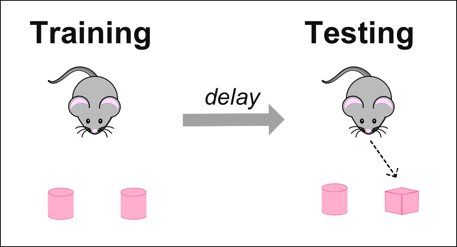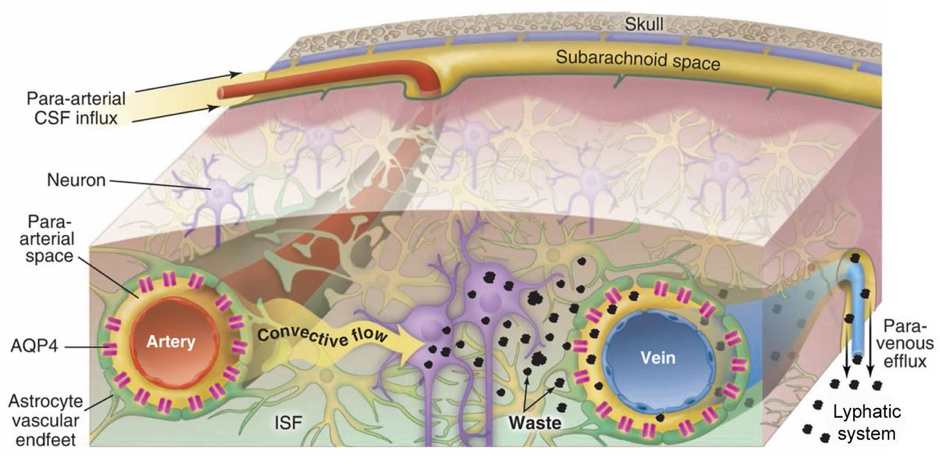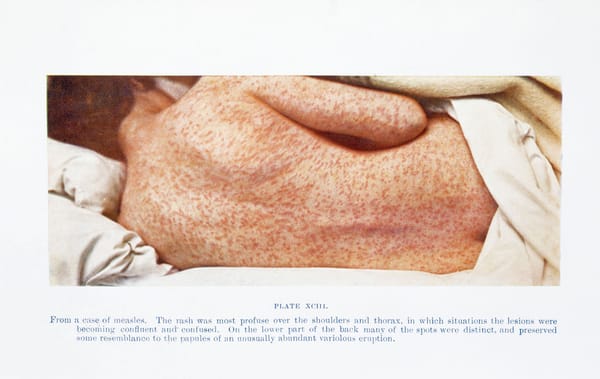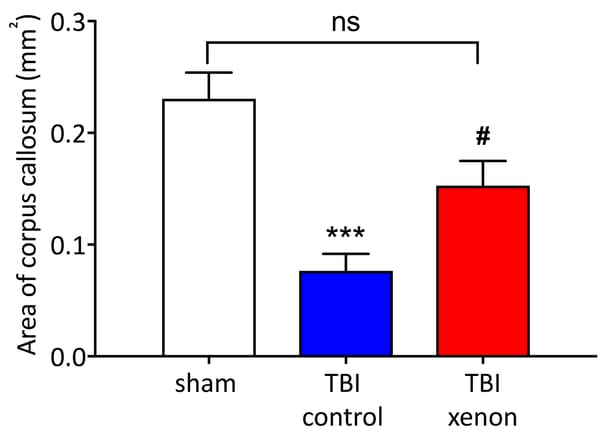Time to go to sleep
Almost all animals sleep, but we don’t know why. Modern research is revealing how sleep is essential for numerous brain functions such as learning, memory and immunity.

During the day, our consciousness sails on the surface of an unfathomable, electrochemical sea into which it sinks every night when we sleep. How – and why – we lose consciousness, which some may argue is the most important part of the human experience, is still an unsolved mystery. With the emergence of technology playing a larger role in our day-to-day lives and the added stress on hard-working university students, many people are experiencing more and more disrupted sleep. Of course, there are also a few ultimate questions we all want answered: how do we fall asleep, what happens during sleep and how can we sleep better?
Inhibitory neurons: the sleep switch
A balance of excitatory and inhibitory signals underlies the function of the central nervous system. When we are awake, the neurons in the brain fire simultaneously to generate a kaleidoscope of neural activity. During sleep, inhibitory neurotransmitters, such as γ-aminobutyric acid (GABA), are released, allowing us to fall into a calm, deep slumber. Specifically, two of these inhibitory neurotransmitters bind to their receptors, which facilitates the inflow of negative ions upon activation (as shown in the image to the right). These negative ions hyperpolarise the neuron, which make the neuron less susceptible to be activated. In summary, when falling asleep, a few neurons release GABA neurotransmitters to inhibit the activity of multiple downstream neurons, which makes us lose consciousness. While scientists have a relatively good understanding of how we fall asleep, why we sleep is currently a matter of debate.
Sleep to remember: the hippocampus is reactivated when you sleep to consolidate memory

Sleep is thought to be crucial for the ability to recall past events, and its deprivation may significantly impair cognitive performance. A nap as short as even six minutes have been reported to improve retention. How scientists gain insights into memory is quite interesting. The novel object recognition (NOR) paradigm (as shown in the image to the right) is a commonly used experiment to test memory consolidation in rodents. A mouse is first exposed to two identical objects (cylinders) in the training phase for ten minutes. After a considerable delay, during the testing phase, one of the two familiar objects is exchanged for a novel object (the cube), and the mouse is expected to remember its interaction with the cylinder and shows an interest in the cube. Using this experiment, a recent article in Nature by Swanglit et al. 2018 reinforced the idea of neuronal replay, stating that memories stored in the hippocampus are replayed during sleep. It was also observed across animals that the artificial reactivation of these memories during sleep further allows consolidation, while the inhibition of the hippocampus during sleep hinders the formation of long-term memory.
Sleep to clear toxins from your brain

Another important function of sleep is thought to be to facilitate the clearance of a toxin called amyloid-β which is an underlying cause of Alzheimer’s disease. After induction of sleep through GABA activity, the extracellular space between the cells in the brain increases. A clear liquid called cerebrospinal fluid then flows from the arteries of the brain into the space between the neurons. This fluid flushes toxins in the brain into the veins, which then transport the toxins into the lymphatic system. The process which flushes out toxins from the brain is called the lymphatic system of the brain, or the glymphatic system, as this process is regulated by glial cells. When we forgo sleep, these toxins accumulate in our brain, which in some cases is believed to lead to devastating diseases. So, Imperial, how is your sleep?
Sleep to perform: how much sleep are Imperial College students getting, and how much is enough?
In the knowledge that poor sleep hygiene negatively impacts cognitive and physical abilities, we conducted a brief survey on how Imperial College Students sleep. Our study showed that lower sleep quality correlated with difficulties to stay awake when performing social or cognitive activities. More precisely, a low quality of sleep negatively impacted function in the morning and afternoon, but not in the evening. This suggests that, while our body adapts to the need to perform during the day, toxin accumulation as well as other damage incurred by our brains from sleep deprivation are not recovered. Visit the Sleep Imperial website for a detailed analysis of the data.
Furthermore, a study published in January 2018 reported that people who prefer to sleep and wake up late are at increased risk of a range of disorders, ranging from psychological, neurological and respiratory disorders to diabetes and even premature morbidity. With the 9-to-5 schedule being so ingrained in the society, how can one improve their overall sleep?
Sleep better!
One major change everyone can make is to their lifestyle, which can include weight management, quitting cigarette smoking, avoiding late night food binges and reducing alcohol and caffeine intake. Notably, the circadian rhythm, an internal clock that determines our sleep-wake patterns, is hereditary (so if you’re having trouble catching those worms, your parents may be to blame!) Blue light emitted by our phones and laptops may also alter the circadian clock and affect our ability to go to sleep. Therefore, it is advised to avoid the use of technology in the evenings, and if you really have to watch that next episode, consider installing a blue light filter on your laptop. For those who have trouble waking up early, exposing yourself to sunlight the moment the alarm goes off (yes, we’re looking at you chronic snoozers) can help you feel more alert during those 9am lectures. Finally, finding a comfortable sleep position is important for musculoskeletal pain, breathing and gastro-oesophageal reflux.
All in all, the path to maintaining healthy sleep patterns will include a lot of trial-and-error. Listening to your body is key. There is no exact, ‘one size fits all’ way to sleep – you have to be mindful of what works and doesn’t work for you. In fact, our ability to sleep differs from one another, and it is sometimes hard to wrap our head around what is good sleep. The Sleep Imperial team has thus created this short evidence-based quiz, which will give you a score on your sleep to help you sleep better: tiny.cc/sleep-imperal.com. Feel free to try it! Who knows, maybe when you begin to sleep better, you might even find that your academics and wellbeing start to improve! Try out the free quiz to get your sleep score:









